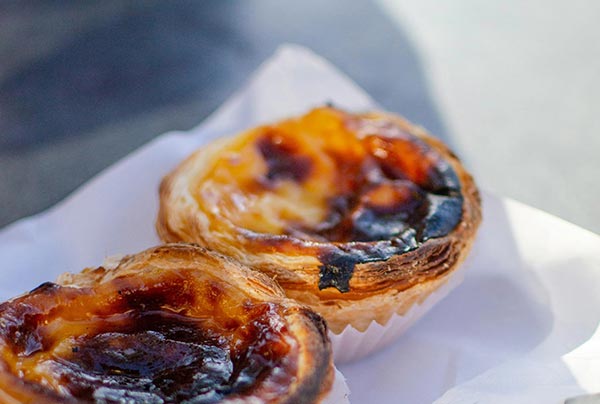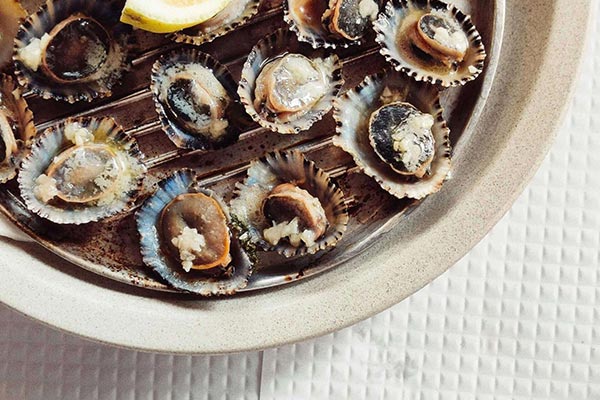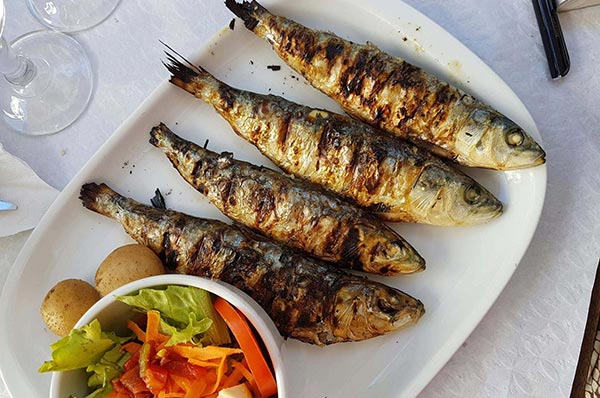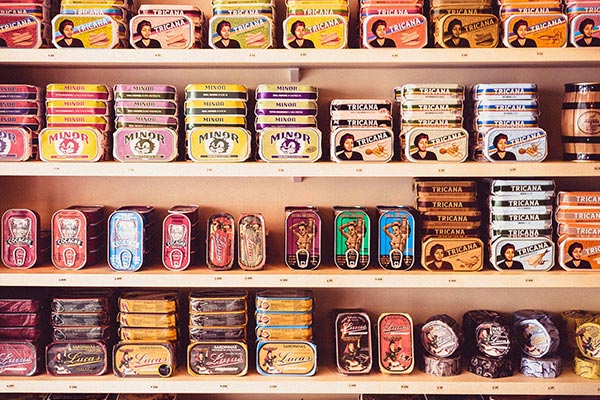Vinho Verde - the green wine
Anyone who goes on holiday in Portugal will also get to know Vinho Verde, a fresh, slightly sparkling wine from the north of Portugal with a sparkling character, a very popular summer wine with an alcohol content of just over 8.5 to 11%. The natural carbonic acid is created by the biological acid degradation of the malic acid contained in the grape juice. The green wine is the literal translation, which comes from the growing area between the Douro and Minho rivers in the north of the country. The green does not refer to the color, as Vinho Verde is available as red, rosé and white wine, although white Vinho Verde is probably the most popular of these three varieties. Some of the most famous brands are:
- Casal Garcia
- Gatão
- Quinta de Aveleda
- Quinta de Azevedo
It should also be pointed out that the mass-produced wine Mateus Rosé is not Vinho Verde.
The most important grape varieties
Alvarinho
Alvarinho is mainly grown in the Monção subregion. The thick-skinned grape produces relatively low yields and produces dry wines with lively acidity and characteristic aromas of peach, citrus and apple.
Padernã/Arinto
Arinto is a noble grape variety, late ripening, Riesling-like, with a powerful acidity. It produces wines with a fruity bouquet with citrus and peach aromas and hints of green grass.
Azal
Azal is a grape variety that is mainly grown in the Basto and Amarante sub-regions and produces fresh, acidic, spicy and delicately scented wines.
Loureiro
Loureiro is one of the most typical grape varieties; it was developed here as the second grape variety after Alvarinho. In addition to producing pure Loureiros, this grape variety is often used in cuvées, to which it gives some suppleness.
Trajadura
An early ripening, fine grape variety, it has a strong acidity and fresh aromas.
Vinhão
Many red Vinho Verdes are produced using this grape variety. It provides the typical black-red-purple color.
REGIONAL SPECIALTIES

Améijoas á bolháo pato: mussels in herb sauce with garlic
Bacalhau: Cod, the national dish (supposedly there are 365 recipes)
Bife de atum: Tuna steak dressed in olive oil
Bife á portuguesa: a type of beef steak is braised with garlic, salt, pepper and bay leaves in oil with a little vinegar and placed in a clay mold. Cover it with bacon or boiled ham, the gravy is extinguished with white wine and poured over it. To top it all off, there’s a fried egg on top. Fried potatoes lie around it in a wreath. The whole thing tastes excellent.
Bolacha: a homemade dessert, an absolute must for food lovers
Borrego: Lamb
Cabrito: Kid that, like lamb, is offered as a kind of coarsely chopped goulash.
Caldeirada de peixe: rich fish stew made from several types of fish, mussels, onions, stewed in white wine.
Caldo verde: pureed potato soup with finely chopped cabbage
Camaróes: shrimp
Cataplana: The dish takes its name from the special pot, the cataplana, in which it is prepared. It is a tasty, strongly seasoned stew with fish or meat, depending on the dish.
Coelho: Rabbit that is often served as estufado, i.e. cut into large pieces, marinated in wine and braised.
Espadarte: Swordfish, delicious like salmon and good for those who don't want to pick bones.
Favas: broad beans with bacon, onions and lots of parsley. The spring food of the Algarve.
Frango com piri-piri: Portuguese and tourists alike love the flattened half chickens, which are marinated in spicy piri-piri sauce with wine before being put on the large charcoal grill.
Gambas: Lobster crabs
Gaspache: cold vegetable soup, mainly made from tomatoes, cucumbers and peppers. Well-seasoned, a summer delicacy.
Langostinos: large lobster crabs
Leitáo: Suckling pig, wild thyme is put into its belly before it is put on the spit or in the stone oven. Leitáo is often offered cold and can be bought at the sausage counter in the supermarket.
Lulas: small, tender squid, lulas fritas are a fried delicacy for anyone who loves squid.
Peixe espada: a long, flat, silver fish, thin as a sword. It comes cut into pieces on the grill and only has one large center bone.
Pescada: cooked, young haddock with firm flesh.
Polvo: large squid
Polvo recheado: they are called when they are filled with a mixture of tomatoes, onions, egg, breadcrumbs and spices. Yummy!
Porco alentejana: briefly fried pork fillet cubes with mussels in white wine sauce.
Santola: technically a sea spider, we would call it a type of crab. Filled with crab meat, chopped eggs with parsley or fresh coriander in wine or beer sauce.
Sardinhas: sardines roasted on the charcoal grill sprinkled with sea salt with salad and fresh bread.
Sopa do dia: Soup of the day/vegetable soup, is offered in every restaurant and is always delicious.
Sopa legumes: vegetable soup
Sopa de peixe: fish soup





